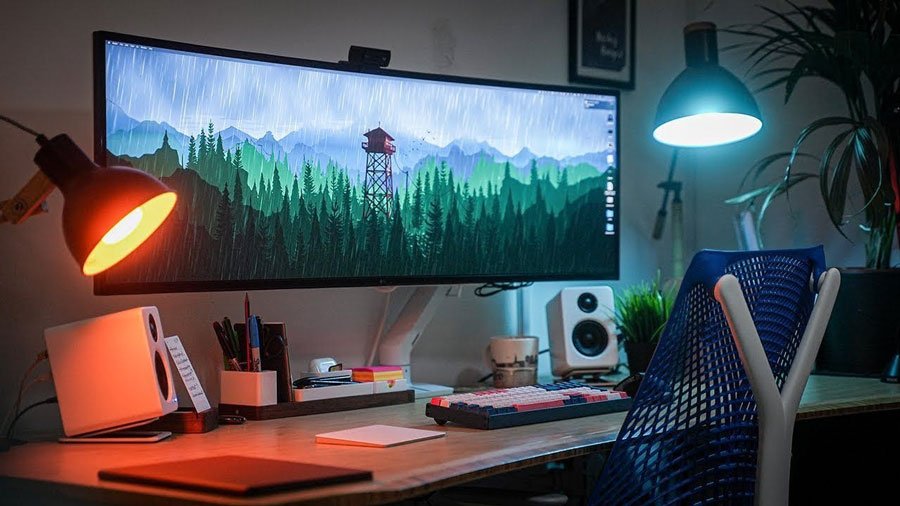Stephen King, one of the most prolific writers of our time, is known for his strict writing rituals.
In his memoir, “On Writing,“ King mentions how he sits at the same desk, in the same chair, every day to write. By controlling and keeping his environment consistent, he cues his brain to know that it’s time to write. This daily habit, coupled with his environment, became a catalyst for his incredible output.
You see, our environment has a profound effect on our cognitive functions and emotional wellbeing.
In fact, one 2014 study found that our environment has a huge influence on our health, emotions, and overall productivity. Here are some of the key takeaways:
- Physical Environment: The study pointed out that the physical aspects of the indoor environment, such as lighting, temperature, and noise, can have significant effects on cognitive functions and health. For instance, adequate lighting can reduce eye strain and increase alertness, while inappropriate temperature levels can cause discomfort and decrease concentration.
- Air Quality: Poor indoor air quality, which might be due to pollutants, can lead to various health issues like respiratory problems, allergies, and even fatigue. These health problems, in turn, can impact productivity and cognitive function.
- Aesthetics and Design: The design and aesthetics of a place, including its colour schemes, space availability, and arrangement, can influence the emotional well-being of the occupants. A well-organised and aesthetically pleasing environment can boost mood and motivation.

But controlling our environment doesn’t mean we have to be stuck behind the same desk every day.
For example, Agatha Christie didn’t have a designated desk, despite becoming one of the best-selling authors in history, with her novels selling over 2 billion copies. For reference: only the Bible and Shakespeare have sold more.
You’d think a writer needs a peaceful, dedicated space. But Christie often wrote wherever she pleased — on the moors, in hotel lounges, or even during archaeological digs in the Middle East with her archaeologist husband. For her, controlling the environment meant having the freedom to adapt and find inspiration everywhere.
So, what can we learn from all this?
Essentially, controlling your environment doesn’t mean creating a sterile, rigid space. It’s about crafting an environment that aligns with your goals and working style.
For some, like Stephen King, a consistent, specific environment signals the brain to work. For others, like Agatha Christie, variety and adaptability are key. However, the underlying principle is the same: be intentional with your surroundings.
Are you someone who gets easily distracted by noises? Maybe noise-cancelling headphones or a quiet workspace might be your thing. Or perhaps you thrive in a bustling environment? A coffee shop with its ambient noise could be your productivity hub.
Marie Curie, the brilliant physicist and chemist, used to walk around her laboratory and think. The physical space, with its tools and notes, sparked ideas and discoveries that led her to win two Nobel Prizes.
In a nutshell, when we say “control your environment,” it’s like becoming the conductor of your own orchestra. You decide the pace, the instruments, and the mood. It’s about understanding yourself, acknowledging what enhances your focus and creativity, and then moulding your surroundings accordingly.
So, the next time you’re feeling stuck or overwhelmed, take a look around. Maybe it’s time to rearrange, declutter, or even just change your scenery. Remember, the right environment is the silent partner in your success story.
Quote of the Day
Being busy is a form of laziness. Doing less is the path of the productive.
Tool of the Day
🌳 Forest
Forest is perhaps superior to other Pomodoro apps because it incorporates both the Pomodoro technique with another means of keeping you focussed and not distracted by your phone – namely, you plant a tree whenever the timer begins and if you go off the app during the 20/25 minute period, the tree dies. It’s an interesting way to help keep you focused through using the Pomodoro technique as well as working on overcoming the distractions emanating from your phone by making sure you stay on the Forest app.